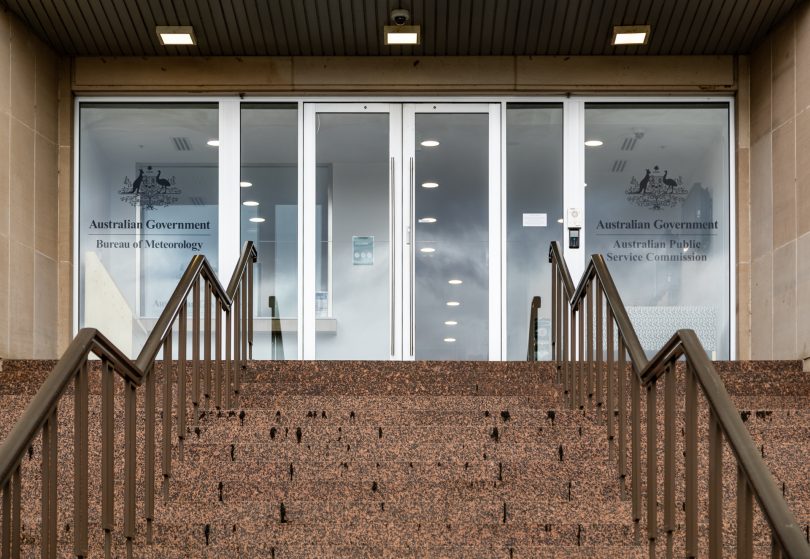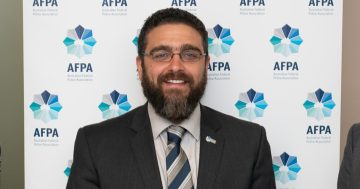
More agencies are saying yes to the enterprise agreement with the Australian Public Service Commission. Photo: Michelle Kroll.
The Community and Public Sector Union is singing the praises of APS agencies that have signed up to enterprise agreements negotiated between the Federal Government and staff.
With more than 20 individual agencies successfully finalising their APS Enterprise Agreement, and all of them returning high yes votes, the union is claiming a progressing victory.
But there remains a long way to go as there are more than 100 agencies in the Australian Public Service, and some other unions representing specific sectors of the APS are actively campaigning against the deal.
In November last year, CPSU members voted to accept a revised national pay deal from the Australian Public Service Commission.
That offer included an 11.2 per cent pay rise with back pay, a sign-on bonus, new consultation rights, improved parental leave, significant flexible work rights, and no cuts to existing conditions.
The bargaining then moved to the departmental level, where agency-specific details are negotiated before the whole EA goes to a vote at each agency.
That is what is currently taking place, and with a deadline approaching.
Voting has so far been carried out for 25 agencies, with high participation rates and all strongly voting in favour of the EA.
Services Australia and the Australian Taxation Office are set to start voting on their specific deals, but not all workforces are happy with the APS-wide deal.
The Taxation Officers’ Branch of the Australian Services Union and the Australian Federal Police Association are separately campaigning against the offer.
Still, CPSU national secretary Melissa Donnelly said the strong response to date at the agency was an encouraging sign.
“We have been pleased to see the high turnout and strong positive response to the negotiated APS-wide pay and conditions package,” Ms Donnelly said.
“The votes we have seen so far reflect the wider sentiment that exists among employees.
“This is a good package that is already delivering APS employees strong, industry-leading conditions, improved pay, and a financial boost.
“With a strong foundation of industry-leading conditions and improved pay, the CPSU will be focussing on enforcing the new arrangements over the coming months. This agreement reflects the hard work put in by thousands of CPSU members and delegates throughout the bargaining campaign and is one they can and should be proud of.”
The AFPA has applied to the Fair Work Commission for a protected ballot to see if its members should strike.
That union thinks federal police deserve a better deal than the one the APSC has struck with the CPSU.
The likelihood of Federal Police strikes is increasing.
AFPA president Alex Caruana said the course of action was the only way forward.
“[That’s] due to the restrictiveness of the government’s Public Sector Workplace Relations Policy 2023 and the non-APS bargaining parameters forming part of that policy,” Mr Caruana said.
“Our application has been lodged, and we’ll wait for the Australian Federal Police to respond and the FWC to make their decision.
“AFP members are the lowest base-paid police officers in the country … yet, we are stuck with a bargaining policy that won’t allow the AFPA to bargain with the AFP to provide pay rises that are competitive with private enterprise and other law enforcement agencies.”
The agencies that have so far voted in favour of the EA are: Finance; National Health Funding Body; Department of Health and Ageing; Treasury; Department of Prime Minister and Cabinet; Education; Administrative Appeals Tribunal; Australian Research Council; Organ and Tissue Authority; Commonwealth Grants Commission; Food Standards Australia New Zealand; Department of Foreign Affairs and Trade; Australian Institute of Health and Welfare; APSC; Cancer Australia; Civil Aviation Safety Authority (a non-APS government agency); Australian Commission on Safety and Quality in Health Care; Office of Parliamentary Counsel (Non-SES); Geoscience Australia; Department of Social Services; Climate Change Authority; Australian Trade and Investment; Productivity Commission; and Defence.
Original Article published by Chris Johnson on Riotact.










